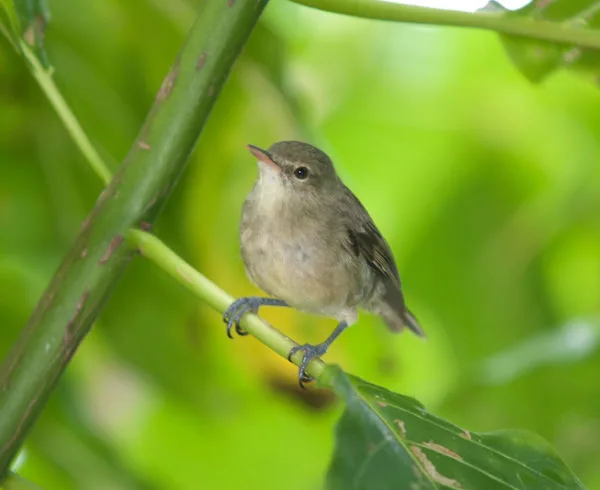ELDERLY SEYCHELLES WARBLERS with young chicks should be more inclined to recruit helpers in order to improve their own survival and the chance of future offspring.
Researchers from the University of East Anglia (UEA) and the University of Groningen, suggest that not only does lower “nurturing investment” improve the parents’ own survival prospects, but the additional care from helpers also reduces offspring mortality.
Seychelles warblers (Acrocephalus sechellensis) have co-operative breeding systems, which means care for offspring is often shared between the dominant breeding pair and a number of adult subordinate helpers that assist with rearing and providing food for the offspring.
Senior author of the paper, Professor David S. Richardson, said: “In many animal species, offspring from ageing parents do not survive as well as offspring from younger parents.
“The amount of care that dominant breeders provide is reduced when they are assisted by helpers and this lower parental investment can improve the parents own survival and future reproductive output.”
Data was collected on individual Seychelles warblers studied on Cousin Island in the Seychelles over the past 30 years.
The researchers found that the chances of survival of juvenile offspring decline increasingly with the age of the mother bird, but that the declines are mitigated when helpers are present. Female subordinates are more likely to become a helper, and the likelihood that female subordinates help increases with the age of the dominant female.
Dr Martijn Hammers, first author of the study, said: “Such late-life fitness benefits of breeding cooperatively lead to the prediction that older parents should be more inclined to recruit helpers to improve both their own survival and that of their offspring.”
The research was led by researchers at UEA and the University of Groningen in the Netherlands, in collaboration with the University of Sheffield and Nature Seychelles.
The study is published in the journal Evolution Letters.


